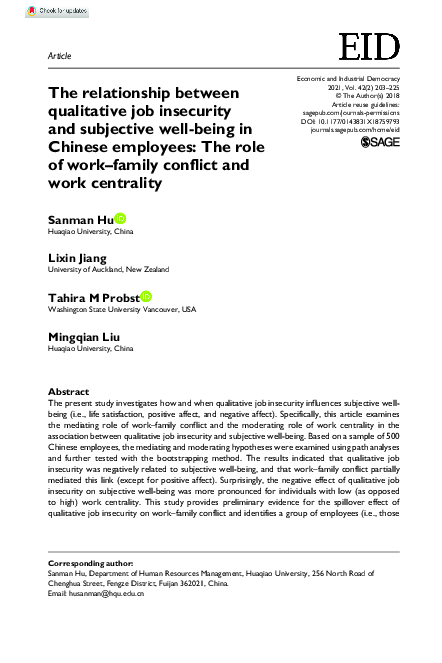The relationship between qualitative job insecurity and subjective well-being in Chinese employees: The role of work–family conflict and work centrality

Hu, Sanman ; Jiang, Lixin ; Probst, Tahira M.
Economic and Industrial Democracy
2021
42
2
May
203-225
job insecurity ; work-life balance ; well being ; work
Labour economics
English
Bibliogr.
"The present study investigates how and when qualitative job insecurity influences subjective well-being (i.e., life satisfaction, positive affect, and negative affect). Specifically, this article examines the mediating role of work–family conflict and the moderating role of work centrality in the association between qualitative job insecurity and subjective well-being. Based on a sample of 500 Chinese employees, the mediating and moderating hypotheses were examined using path analyses and further tested with the bootstrapping method. The results indicated that qualitative job insecurity was negatively related to subjective well-being, and that work–family conflict partially mediated this link (except for positive affect). Surprisingly, the negative effect of qualitative job insecurity on subjective well-being was more pronounced for individuals with low (as opposed to high) work centrality. This study provides preliminary evidence for the spillover effect of qualitative job insecurity on work–family conflict and identifies a group of employees (i.e., those with low work centrality) who may be more vulnerable to the negative effects of qualitative job insecurity on well-being."
Digital
The ETUI is co-funded by the European Union. Views and opinions expressed are however those of the author(s) only and do not necessarily reflect those of the European Union or the ETUI.